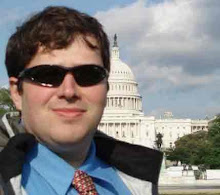Greenberg’s central “thesis” as he called it was that humans now stand at the precipice of making critical decisions involving the future of the world’s fisheries. He pointed out that hunter gatherers narrowed down the many, many mammals that used to range our ancestral lands to four that are considered somewhat common now, sheep, goats, pigs and cattle. He then notes that humankind then turned its attention to the skies, narrowing those down to four key species chickens, turkeys, ducks and geese. He then proposes that we will likely do the same to fish, pick four that are manageable species that meet certain taste/textures requirements, and cultivate them while slowly driving other species to extinction. The factors that make this push are varied, from human kind’s desire for choice but “not too much choice” to industrial efficiency favoring only a few profitable options.
He noted that while for our ancestors the culling was not a decision but a necessity. For us, given our improved understanding of ecosystems, what we do to fisheries in the future is a decision and one that we need to consider presently.
The format of the book seems to be an autobiographical introduction, an introduction of the thesis then a discussion of four fish species within context of the thesis including sea bass, cod, something else and tuna.
The discussion that followed the reading was lively and topics ranged along the following:
- Categorizing fish as food or wildlife and how public perception of this divide drives choices.
- That human taste changes with time, and that has allowed us to move from one fish species to another very quickly, with devastating effects on the “fish of the year.”
- Is sustainable fishing really a good premise to move towards. Once a fishery is declared “sustainable” society will move towards it rapidly, making it immediately unsuistainable.
- A question was asked where shell fish fit into his thesis, and Greenburg seemed to think that it was a different issue, one that affected developing nations more than developed nations.
The idea is pretty interesting and a I thought a solid one. My fisheries friends told me that there were a lot of holes in the principle of the idea, but in my ignorance I missed them. Anyone want to cast some doubt on the theory?




1 comment:
Nice post about the lecture...thanks for doing that. Here's a link to a great video 'The story of stuff' about overconsumption in the U.S.. It may make a good post during a slow news day.
http://storyofstuff.ethicalbrand.org/
Post a Comment